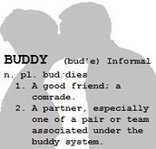
Before I say much more I do have to point out that I was very amused to have a play that's largely about language appear in a series called "There Will Be Words."
Readings are a step in the development of a new play. I once discussed this process with a computer programmer friend and we realized that we had something significant in common: neither playwrights nor programers really know what they've done until they get to see it running. The staged reading is a sort of a test run of a play wherein the writer can figure out what changes they intend to make as the work evolves.
This was the first time I've heard the play in its entirety in front of an audience. I did have the privilege of a table reading of an earlier full draft at the Lark Play Development Center this past November (which I blogged about here) and I got to hear a chunk of it at a Small Theatre Alliance reading back in September (which I also blogged about) after earlier development through Playwrights' Commons' Summer Playground. All three were really useful experiences, and the script has come a long way because of them, but this last piece was a larger step as it was an opportunity for me to evaluate the current (more advanced) draft under more public conditions and figure out what to do with it next.
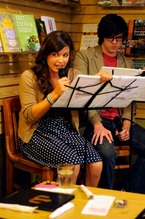
They acquired a cast great actors for me (Caitlyn Conley and Josepd Eward Metcalf), and arranged for a very productive rehearsal process leading up to the reading, as well as a pretty effective publicity campaign that got butts in seats for the event itself.
My play was selected back in March, which is a pretty good lead time for a May event. I had done a pretty significant rewrite since its last incarnation, so I was pretty happy to know that I'd get a chance to hear it again in front of an audience.
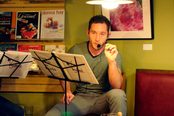
I made several edits to the play during the rehearsal process. Oftentimes it was because I have a belief that if a line continually sounds awkward coming out of the mouth of a good actor who has had time with the script, there is a good chance that there is a better way to write that line. Actors are the final mediators of your characters, and I have a firm belief that their input is important in the playwriting process. I know that Joe is on his way to an apprenticeship at the Actors' Theatre of Louisville next season, where some very lucky playwrights will benefit from his input. He and Caitlyn were instrumental in helping me reimagine the next steps in the writing process.
Working between myself and the actors was Vagabond's Artistic Director, James Peter Sotis. People of Boston: This is a director to watch. He has great insight into the psychological and subtextual undercurrents and that drive characters on stage, as well as a solid grasp of spectacle and theatricality. I repeatedly had the experience of hearing him describe what's happening in a scene on a deeper level than I originally saw it myself and being able to go, "Yeah, that's exactly what I meant." For a script in progress, having emotional undercurrents described in detail by a third party is very valuable information as you move on to the next draft. It allows you to zero in on the heart of a moment and bridge it to the next one with a clear idea of how and why the scene is moving in that direction.
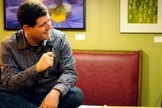
My questions for the audience were largely centered on how much they understood the changing definitions of words, if they were able to keep track of where we were in time from scene to scene, if the shifts in power were clear, and if they were rooting for the characters.
Talkbacks are often a delicate performance in and of themselves. I hope I do not offend when I say that the best skill for a playwright to develop during talkbacks is separating what is useful from what is noise. I was fortunate to be working with a group that let me prepare the questions the audience would be asked in advance, which meant that most of what I heard was useful.
I'm already will into the next draft of Burning Up the Dictionary. I hope to have more to report on it in the near future. I already know that I'll have more to talk about regarding Vagabond, as I'll be switching gears a bit and composing violence for their upcoming production of Thom Dunn's new play, True Believers.
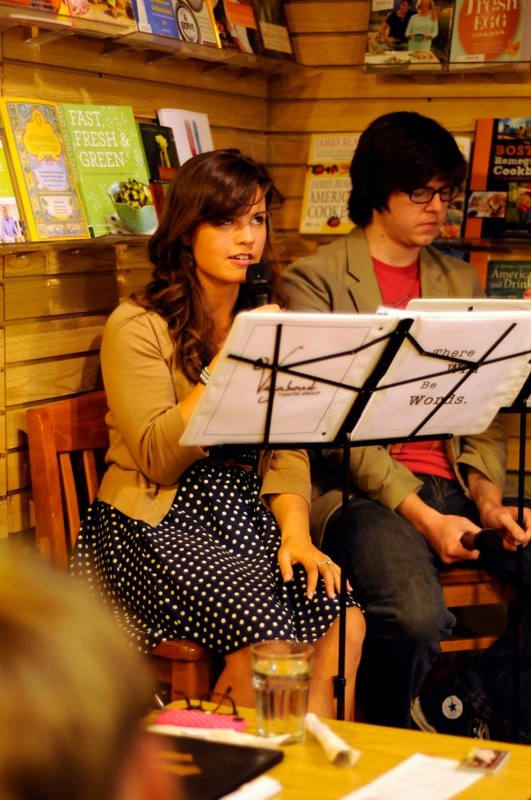
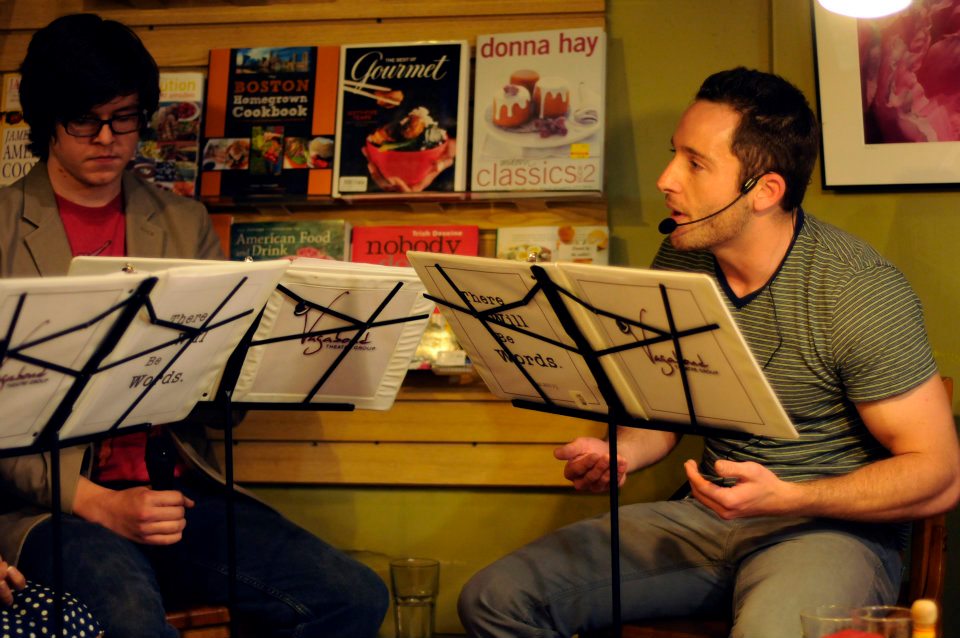
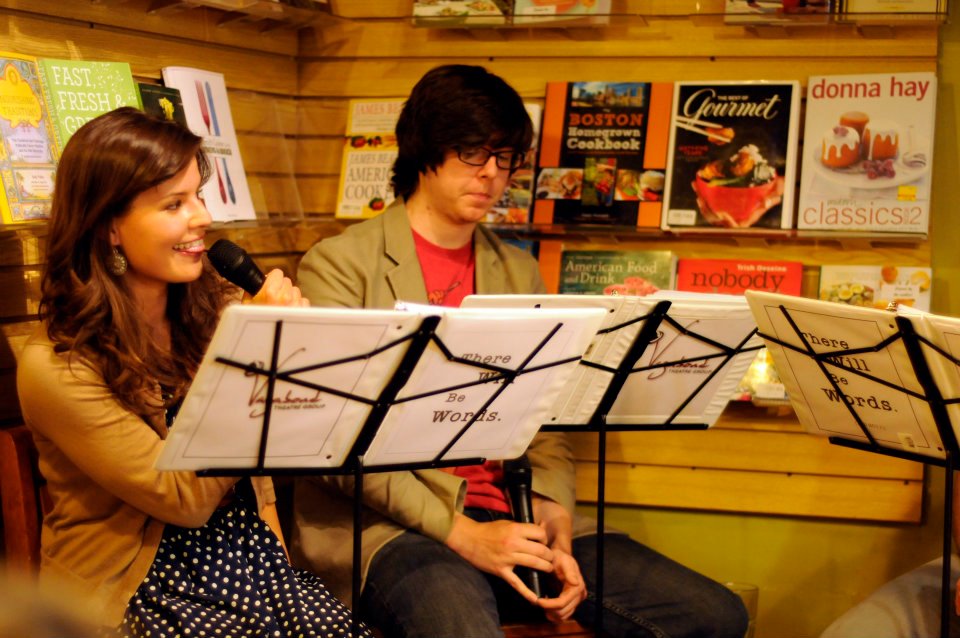
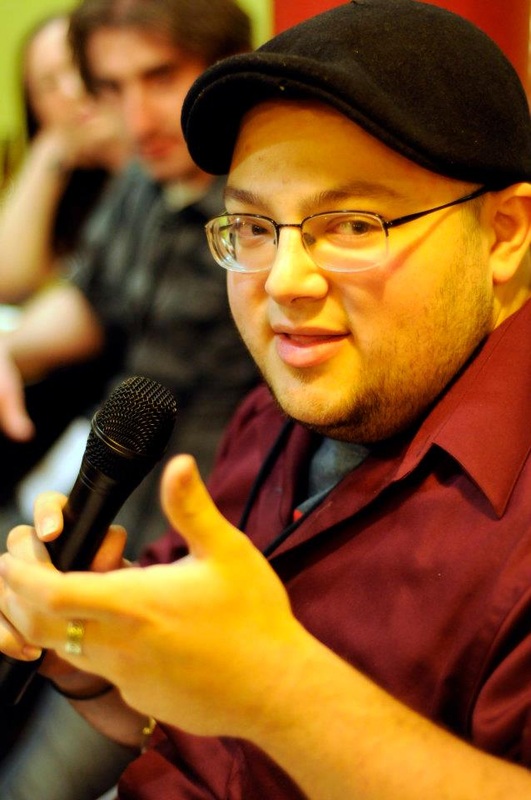
 RSS Feed
RSS Feed